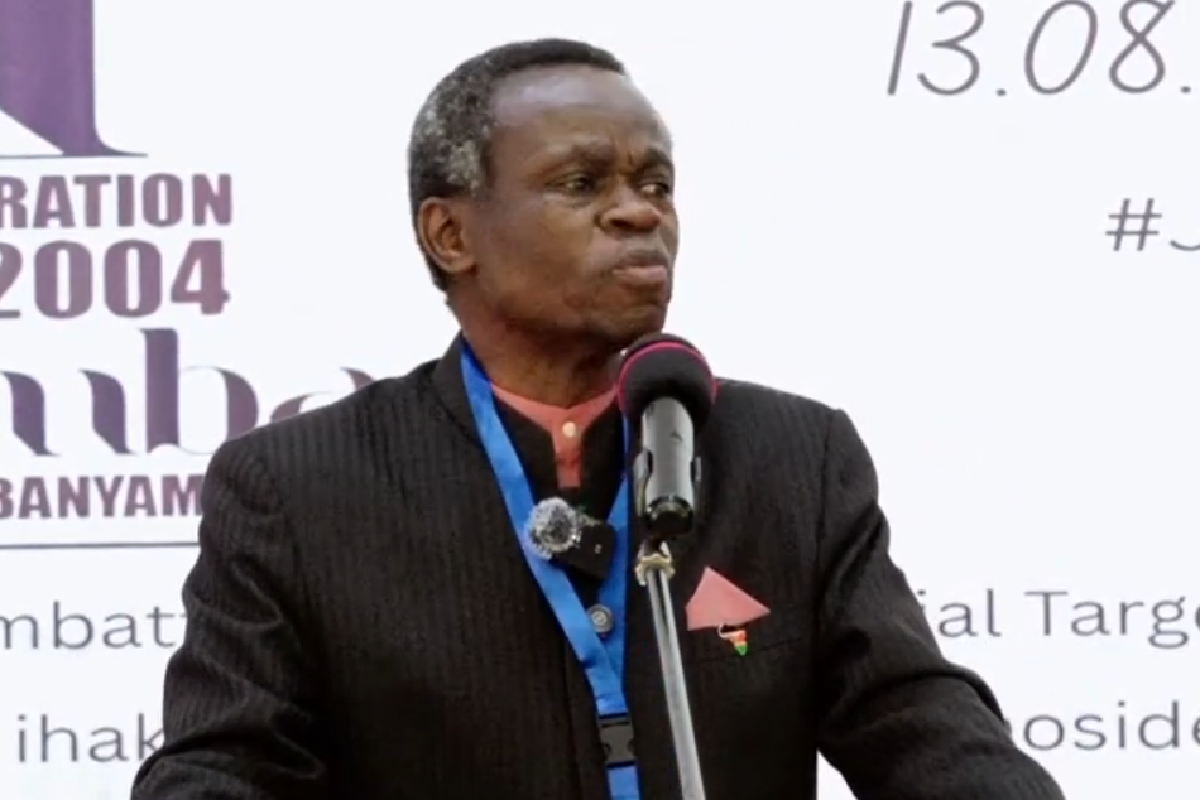On August 13, 2025, Professor PLO Lumumba delivered a powerful address during the commemoration of the 21st anniversary of the Gatumba massacre Against the Banyamulenge at Umoja, Nairobi, Kenya, with a solemn ceremony attended by survivors, the Banyamulenge community, and human rights advocates.
The event honored the memory of 166 Banyamulenge Tutsis killed in Burundi on the night of August 13–14, 2004. Professor PLO Lumumba delivered the keynote speech, issuing a sharp call for African unity, justice, and the end of impunity.
The Gatumba massacre took place in western Burundi, near the border with the Democratic Republic of Congo (DRC), when armed attackers slaughtered men, women, and children seeking refuge. Despite eyewitness accounts and identified suspects, no one has been prosecuted for the atrocity. Many survivors remain displaced, and violence against Banyamulenge communities continues in parts of eastern DRC.
Speaking before survivors, community leaders, and members of the Banyamulenge and wider Great Lakes diaspora, Lumumba’s words resonated deeply with themes of justice, African unity, and the urgent need to end impunity for crimes committed across the region. His message was not only a remembrance of the tragedy that occurred in Gatumba in 2004 but also a direct call to action for African leaders, institutions, and citizens.
In his speech, Lumumba reminded the audience of the historical context behind the persecution of the Banyamulenge people, the role of colonial borders in creating divisions, and the failure of both regional and global bodies to prevent atrocities.
With his trademark passion, he challenged leaders to take responsibility rather than relying on outside intervention, urging concrete resolutions and letters to be sent to key authorities to ensure justice is pursued. Below is the full transcript of Professor Lumumba’s speech, delivered exactly as it was spoken.
He said:
“This is a small contribution from us, the little that we have. If others among us are able, let them also contribute according to their ability.
We know that events like this require money, and as much as we can, I urge you, and those who have the financial means beyond us, to also contribute. My brothers, I will not speak much more; I will end by asking that God comforts us.
For the benefit of those who are fluent in English, I will now summarize.
History has been narrated to us. Let us not think that this was the first massacre against the Banyamulenge or the Tutsi people.
The effect of colonial boundaries was to divide relatives, and as a result, when our countries regained independence under those same borders, the Banyamulenge were labeled as Congolese, while some of their relatives were found in Rwanda and Burundi.
Yet some modern-day African leaders, or should I say misleaders, dare to claim that the Banyamulenge are not Congolese simply because of those imposed boundaries. We are here to remind them that we are Africans wherever we are, and that we owe each other a duty of care.
When we talk about Ubuntu, we mean: ‘You are because I am.’
We live in a region that is part of the East African Community, now composed of eight countries. Our stated goal is to make East Africa one country and ultimately unite the entire continent of Africa.
We cannot claim that vision while discriminating against one another. The tragedy of the Gatumba massacre is that it happened right under the watch of the United Nations. Just as with the Tutsi genocide in Rwanda in 1994, we failed to learn the lesson.
And the tragedy continues, because the perpetrators are known, alive, and free. Their methods of killing are barbaric: they burn, they suffocate, they rape to death, they disembowel. For what purpose?
History has shown that when we allow impunity, the same crimes will be repeated.
We gather here not only to remember those we lost and those who survived but were scarred physically or psychologically, but also to remind the world that the story of Gatumba, like other massacres, is not closed until the perpetrators are punished.
We remind the world that this is not over, because, as I speak to you today, August 13th, 2025, the killings are still happening.
Where is the East African Community? Where is the African Union? Why do we humiliate ourselves by letting others come to make peace for us? Why must we go to Doha? Why must we go to Washington to be humiliated? Can’t we do it ourselves? Are we children of a lesser God?
To the leaders present here, I urge that from this meeting, there be a resolution. A resolution to be sent to the Chairman of the East African Community, to the Chairman of the African Union Commission, to the Secretary-General of the United Nations, and to the Prosecutor of the International Criminal Court in The Hague, demanding that the perpetrators of the Gatumba massacre and other massacres be brought to justice.
A specific letter should be sent to President Félix Tshisekedi of the Democratic Republic of Congo to remind him of his solemn constitutional duty to protect all the citizens of the DRC.
That was the message Patrice Emery Lumumba gave in 1961, but it has been forgotten. The time to remind them is now.
That letter should also be sent to all clergy in the DRC, urging them to demand that the government create conditions for people to return to the places where their umbilical cords were buried.
That is all we ask. It is our duty as Africans, in the spirit of Ubuntu, to join hands in times like these.
In Kiswahili we have a saying: Akufaye kwadhiki ndiye rafiki, ‘A friend is the one who helps you in times of trouble.’ You are in trouble, and we have come as friends.”
Lumumba’s address was met with quiet reflection and firm applause. Community elders described it as “a moral wake-up call” for African political bodies. Several speakers echoed his demand for immediate international and regional action.




